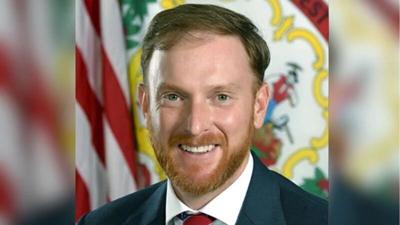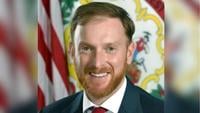
West Virginia Attorney General J.B. McCuskey
CHARLESTON – West Virginia Attorney General J.B. McCuskey’s office is warning state residents about FEMA-related scams happening in the wake of the federal government’s disaster declaration for flooding that occurred earlier this summer.
The AG’s office is urging residents to report any potential scams attempting to take advantage of flood victims. The office said one of the latest scams involves con-artists who are posing as Federal Emergency Management Agency employees in northern and north central West Virginia.
“During disasters we often see the best in West Virginians — our generosity and volunteerism is second to none,” McCuskey said. “But unfortunately, it’s also a time when bad actors try to take advantage of that generosity and of the urgent need of people trying to put their lives back together.
“We remind everyone to be cautious and ask questions before donating or giving out personal information.”
The AG’s office listed some ways to help identify such scams. Those include:
Official Identification: FEMA staff and their contractors always carry official badges with their names and photos. Wearing FEMA-branded clothing is not enough proof. Ask to see their badge and verify their identity.
Requests for Money: FEMA will never ask for money for disaster assistance services. Don’t trust someone who asks for money. Don’t believe anyone who promises a disaster grant and asks for cash deposits or advance payments in full.
Unexpected calls or texts: FEMA only contacts individuals who have applied for assistance. Be wary of unexpected calls or texts, especially those demanding personal information.
Personal Information: FEMA will never ask for your Social Security number or banking information during an inspection or the application process.
Question Endorsements or Referrals: FEMA does not endorse any commercial business or product and legitimate FEMA staff will never ask for money for services for aid or other services.
Verify Information and Report Anything Suspicious: If you receive a suspicious email, text or phone call or if a FEMA inspector comes to your home and you have not filed a FEMA application, contact FEMA’s Helpline at 1-800-621-FEMA (3362) from 7 a.m. to 11 p.m. to verify the legitimacy.
McCuskey’s office also is reminding residents that FEMA inspectors only require verification of identity and not your FEMA registration number, Social Security number or similar personal data.
Anyone with questions is asked to call the Consumer Protection Division of the West Virginia Attorney General’s Office at 800-368-8808. And to file a report online, residents can visit www.ago.wv.gov.








